By Dave Leichtman, DPVA Vice-chair for Technology and Communications (via BlueVirginia)
With the news that Delegate Herring is stepping down as DPVA Chair, I believe the time is right for some deep introspection within VA Dems. We had some big wins in 2013, and for that, Del. Herring is to be congratulated. She oversaw an unprecedented level of coordination with the McAuliffe campaign. To her, I say thank you for your service, and best wishes on your future endeavors (specifically a Congressional run in the 8th).
But now what?
There’s still a lot that needs to be improved with the State Party. On balance, we won a net of only 1 seat in the House (which we may yet lose), and we just barely held the Senate this month by a mere 9 votes (recount pending).
This is the perfect time for a complete re-examination of our strategy for the next six years. What better time than now to jump in head first? The 2014 cycle is just getting started; we have only a handful of staff and exiting leadership. We have a not-unreasonable budget and a plan to hire many new staff members as the campaign gets into gear. Some say crisis, I say opportunity!
Step 1: Find a New Chair
Well, sure, that’s obvious. The Central Committee will hold a vote for a new Chair on March 15th. But what’s the job of the Chair, and what should we be looking for in a new leader for DPVA? Such a person should not only be good at fundraising, but also at hiring and team management. The Chair must not only staff DPVA, but also manage the Steering and Central Committees. We have an amazing reserve of volunteer talent just within DPVA’s political body, and it often goes untapped for lack of direction and oversight.
The ideal candidate also needs to understand how critical it is to build up DPVA’s staff and physical infrastructure as well as that of our local committees. We cannot win back the House of Delegates in 6 years if we don’t have a long-term plan in place for doing so, and that plan has to involve enabling our local committees and making them successful.
But foremost this new Chair cannot be “anointed.” In the past, DPVA has had a bad history of being told who our next Chair would be. That’s not said as a knock against any of our past leadership, but a lack of healthy competition and exchange of ideas has certainly diminished the vivacity of our party.
The statewide elected officials have a vested interest in seeing the Party subjugated to their goals and fundraising strategies. And, in fairness to them, some people might not have a problem with that. Maybe the Governor should be able to choose the Chair. The problem, though, is that a strategy that focuses solely on winning statewide elections is one that results in collateral damage to the Party, the local committees, and their infrastructure. That same strategy that concentrates on driving voter turnout in Northern VA totally ignores the rural constituencies downstate. Doing so makes it nearly impossible to recruit the quality candidates needed to win back the House and to win back the redistricting process in 2020.
And so we need a Chair who is not simply chosen by the Powers That Be. The new Chair must be selected from among a pool of good candidates by the Central and Steering Committees. That person must understand both the strategic needs of our elected officials and the critical need to build up our local committees. That person must represent our whole Party, not just certain political interests.
Step 2: Hire Good Staff
Again, this may seem an obvious statement. We’ve had some excellent staff in the past, and we’ll likely have excellent staff in the future. I don’t believe that hiring has ever been our weak point. However, in order to recruit the best candidates, we must dissolve this bifurcation of our Party infrastructure that occurred over the last two campaigns. We now have an almost completely independent Coordinated Campaign that is free of DPVA’s budgetary oversight and management. Some at the top might say that’s a good thing, that it lets serious campaigners run serious campaigns. But what it really does is to further this split between the Party and the campaigns and elected officials. The new ED must be allowed to run the Party and its campaign infrastructure. The new ED needs to also run the Coordinated Campaign. Only then can we break out of the yearly cycle of staffing up and down, of losing institutional knowledge and talent.
Which brings me to my next point…
Step 3: Keep the Staff!
For a Party that claims to be the standard bearer for labor, you sure wouldn’t know it by the way we treat our staff. Party staff are continuously underpaid and overworked, and then dismissed on a whim because of poor budget planning and “spending to $0” on Election Day.
Any serious long-term planning needs to involve a strategy to recruit and maintain talented individuals, preferably ones who know and understand Virginia and have a vested interest in seeing the Commonwealth succeed. Currently, we don’t place any value on maintaining institutional knowledge, on staff development, or on retention. Who can blame staff for only sticking around for a cycle or two? We have an opportunity right now to break that vicious circle, and we should do so by raising staff salaries and by long-term budgeting across campaign cycles.
Step 4: Let the New Chair Select the ED
Critically (and relevant given today’s announcement), the new Chair needs to be able to hire the new Executive Director. Having an outgoing Chair select the ED may seem the best course given a potentially rushed timeline, but a new Chair may have different goals and strategies that might suggest different hiring. There is also the serious danger that the statewide campaigns and split coordinated simply anoint their own choice, making the job of the incoming Chair that much more difficult.
Step 5: Run the Party
One disturbing trend in DPVA over the last 4 years has been the re-branding of the Chair’s position as a figurehead role. The Chair can’t simply be the Chief Fundraiser or Chief Spokesperson for the Party. That person must also be entirely vested in running the Party full-time. The Chair must be CEO to the ED’s COO, as well as being Chair of the Board of Directors (the Steering Committee).
As such, I recommend that DPVA’S next Chair be a person who can devote their full time to this position. We should have somebody who is either retired, or we should fund the position as a full-time job. At the very least, the Chair should not be an elected official; the job of an elected official is too critically time-consuming, and the focus of the position cannot and should not be as a springboard to future office.
Step 6: Focus and Win
For too long, we’ve run the Party as a series of continual one-year campaigns. This has to stop, and it has to stop now. No company could ever be successful if their planning involved only a one-year horizon. Why would we assume differently for DPVA? We must have a six-year plan in place to take back the House of Delegates by 2019, and all entities of our Party must be involved in constructing it. We must build up the Party infrastructure and local committees so that we don’t have to reinvent the Coordinated Campaign every year. We must run the whole Party – all of it – as a single, coordinated entity. The Party’s overall strategy should inform our budget and operations, not a haphazard campaign schedule.
We have an opportunity now to make our Party better, stronger. Some say it’s heretical to question the Party and how it’s run. I disagree. I firmly believe that only by introspection and evaluation can we hope to become better. And I mean no disrespect to those who might think this critical, but if we’re not looking forward, we’re looking backward.
Winning back the House of Delegates, controlling redistricting in 2020, and holding onto our current wins is an achievable goal, but only if we move quickly and decisively. Now is the time! Let’s seize the opportunity.
